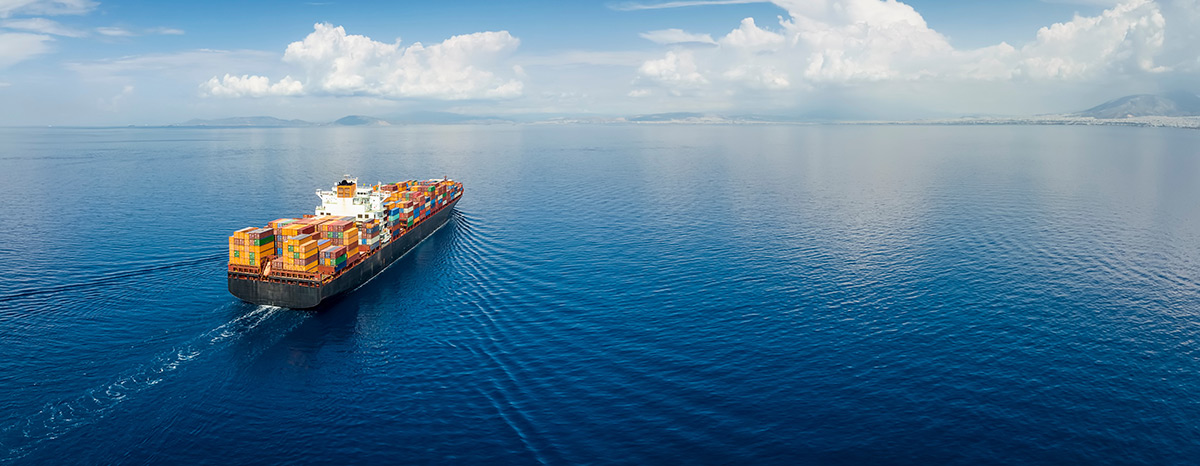Over the last 26 years, Spinnaker has placed hundreds of people in shore-based shipping jobs and we are proud that many of our candidates have then become clients, some we have even placed multiple times throughout their career.

One of our earliest placements, and a candidate that sticks out, is Mike Powell. These days Mike works as an independent contractor and is currently working as the Chief Business Officer for StratumFive, a British tech company, and is an Associate with the global energy and research consultancy, Wood Mackenzie.
We have placed Mike in no fewer than 4 roles during his 40-plus-year maritime career.
Having achieved command, Mike’s seagoing career ended in 1994 and he first appeared on our radar soon after he joined Stephenson Harwood as a Marine Manager in 1998. We placed him a couple of years later with Enterprise Oil as a Marine Operations Advisor.
When asked about this role Mike says, “I was pretty much making it up as I went along at this point, and had completed a four-year stint in Singapore before embarking on qualifying as a solicitor with SH. Maritime recruiters were rare, and Spinnaker was among the first to really start matching candidates with opportunities that would appeal to them and develop their careers. With Enterprise Oil they nailed it and I’m pretty sure, if the company had not been bought by Shell in 2002, I’d still be there!”
Mike went on to become the first Director (Maritime) of the UK Confidential Hazardous Incident Reporting Program, better known as CHIRP, and launched the safety initiative in 2003.
We kept in touch with him during this time after the success of the program was endorsed by the UK government, and placed Mike in his second role as Manager Ports and Terminals Assurance with BP Shipping in 2007.
Mike said, “I really appreciated Spinnaker checking in as CHIRP developed, and when the time came to move on there was a role lined up. BP Shipping was a great place to work, but challenging times were ahead and when a round of restructuring began, I would come to rely on Spinnaker’s insight into the market to again identify options.”
We then placed Mike in his third role as Global Head of Tanker Operations at ST Shipping and Transport, the shipping arm of Glencore in 2010, but as the financial crisis of the time continued to impact shipping, restructuring was widespread and unfortunately redundancy followed in 2011. Mike decided to work independently and set up Cardinal Point Marine Ltd, but we kept in contact and placed him for the fourth time with Maersk Tankers as Global Head of Tanker Operations in 2013. Of this volatile period Mike comments: “It is difficult to know what’s best and make good decisions during times of uncertainty, so having Spinnaker available was always helpful. Not everything worked out as planned, but Spinnaker always had options. Ironically the experiences gained during this period of almost constant change probably helped secure the role with Maersk Tankers where I was responsible for a restructure!”
We asked Mike to draw on his extensive experience in the industry and asked him some challenging questions.
What do you think have been the biggest positive changes in the maritime industry over the last 20+ years?
“There are many things worthy of mention, but a few highlights over this period are the implementation of the International Safety Management (ISM) Code in 1998 which introduced the novel, and belated, requirement for a shore-based organisation to be certificated as competent in ship operation. The Maritime Labour Convention of 2006 contributed a great deal to the conditions under which seafarers are employed, although demonstrably there is more work to do. Finally, the increase in the number of voices we can hear in maritime through improved connectivity of all kinds is leading to greater diversity which will be essential if we are to solve the problems the future holds.”
What challenges do you think maritime face over the next 20+ years?
“I think it’s pretty clear decarbonisation and technology transformation will provide the greatest challenges to the industry as it is today, but we should also be hugely excited about the opportunities those challenges will provide to innovate and define the shipping industry of tomorrow.”
What jobs do you think will exist in the next 20+ years which don’t today? Or in which sectors?
“There will be new roles in shipping to address the complexity of GHG reduction, accounting and management. Systems development and remote asset operation also look like growth areas, even if the latter is some time away for the international fleet. There will be new roles and new ways of working across shipping which I hope will attract talent from an increasingly diverse employee base.”
You can get in touch with Mike on LinkedIn and you might see him at the annual OSCAR Dragon Boat race raising money for Great Ormond Street Hospital for Children rowing with the ‘Spinnaker Strokes’!



